‘We fly as one’: Launceston General Hospital HR manager denies ‘cover-up’ over paedophile nurse
The HR manager of Launceston General Hospital has denied there was a “cover-up” of the hospital’s prior knowledge of paedophile nurse James Geoffrey Griffin.
Police & Courts
Don't miss out on the headlines from Police & Courts. Followed categories will be added to My News.
ON THE night before Launceston General Hospital’s HR manager was first due to give evidence before the child sexual abuse commission of inquiry, he allegedly sent an email to a colleague saying “we fly as one”.
But upon his return to the inquiry on Thursday, James Bellinger denied there was a “cover-up” of the hospital’s prior knowledge of paedophile nurse James Geoffrey Griffin, despite the hospital having received a notification he was a child abuser as early as 2011 – years before he was stood down and died by suicide in 2019.
Mr Bellinger also said the reference to “we fly as one” was about a football club that used the motto as a brand.
Counsel assisting the commission, Elizabeth Bennett SC, read out an email sent on June 27 this year from Mr Bellinger to retired colleague Gino Fratangelo, who also previously gave evidence before the inquiry, on the night before he was due to give evidence.
“Hey buddy, yep tomorrow afternoon. Last spot. Yep I’m okay most of the time but if the wrong person asks the right question (whingey emoji). But as always, we fly as one,” Ms Bennett read.
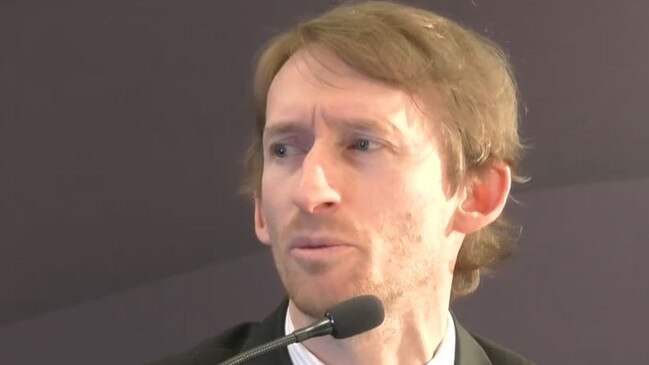
“Mr Bellinger, who is the wrong person?”
Mr Bellinger answered it was a “coping strategy of mine”.
“If people that have a genuine interest in me ask a genuine question, I’m more likely to get upset … it’s not about my evidence but the emotional impact and my responses to people who may ask me how I’m going,” he replied.
Ms Bennett also asked Mr Bellinger about the “we fly as one” comment.
“I think it’s a reference to teamwork and a particular footy club that had that as a brand at one point in time.”
Mr Bellinger admitted had it not been for the 2020 podcast The Nurse, an allegation against Griffin by one of the hospital’s staff members back in 2011 would have remained “shrouded in secrecy”.
“My involvement may have not been adequate, it may not have been sufficient, but ‘cover-up’ implies that there was an intent to cover up … it was not the intent to bury it,” he said.
On Thursday, Mr Bellinger admitted he knew about Ms Pearn’s earlier disclosure at least by October 11, 2019 – a week before Griffin died – but hadn’t escalated it.
Ms Bennett read Mr Bellinger a document authored by the LGH in November that year, which read “the LGH had not received any complaints from patients or their families regarding inappropriate behaviour by Mr Griffin that would warrant a Code of Conduct investigation, Australian Health Practitioners Regulation Authority notification or Tasmania Police notification”.
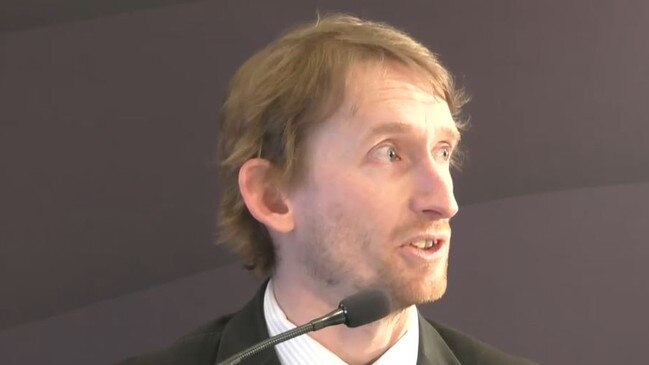
Mr Bellinger agreed the document was “wrong” and “misleading”, and was a “critical failing” that he was involved in.
He also agreed he’d acted in error during a “desktop”, internal review the following month of the hospital’s HR regarding its management of Griffin.
Mr Bellinger agreed he hadn’t included Ms Pearn’s disclosure as part of the internal review, and didn’t see it as a conflict of interest at the time that the hospital’s HR department was investigating itself following a notification from a hospital employee.
Former CEO suffers medical incident again while giving evidence
PARAMEDICS have again been called to Tasmania’s child sexual abuse commission of inquiry, with the former CEO of Launceston General Hospital having another medical incident in the witness stand.
Stephen Ayre had collapsed while giving evidence during tense examination in Launceston on July 1 – in an episode that was almost replicated in its entirety on Thursday.
This time, Dr Ayre had a medical episode after again being grilled on the same topic – whether he had any prior knowledge of Launceston General Hospital paediatric nurse and paedophile James Geoffrey Griffin.
The hearing room in Hobart was cleared on Thursday as paramedics attended to Dr Ayre.
In July, hospital nursing and midwifery director Sue McBeath told the commission she had a conversation in February 2021 with Dr Ayre – who was CEO between 2004 and 2008 – about his prior knowledge of Griffin in the wake of revelations being aired on Camille Bianchi’s podcast The Nurse.
Ms McBeath claimed Dr Ayre told her he’d been contacted the police during the time that he was the CEO and “that on the advice of HR he was advised to let the police investigation take its course”.
In July, before his initial collapse, Dr Ayre strongly denied he had previous knowledge of Griffin’s conduct at the time he was CEO.
On Thursday, Dr Ayre agreed he’d had a conversation with Ms McBeath about Griffin’s offending, but only in a “general sense”.
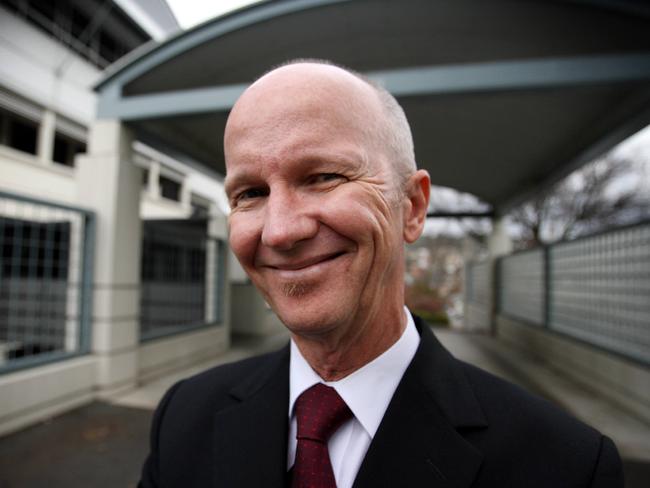
Counsel assisting the commission, Elizabeth Bennett SC, suggested to Dr Ayre that his evidence on his last appearance before the commission had not been “frank or forthcoming”.
“No, that’s incorrect,” he replied.
“The issue for me at the last (occasion) was that was completely fresh information to me and that I hadn’t had a response – hadn’t had any time to consider the information that was provided by Ms McBeath.
Ms Bennett suggested Dr Ayre’s version of events had changed from the previous occasion.
But Dr Ayre denied he’s previously told the commission that “no such conversation” about Griffin’s offending had taken place.
“I provided the information that I had at that time in my recollection of the circumstances of the conversation,” he said.
Before his medical incident, Dr Ayre also gave evidence about how the hospital managed an historic sexual assault dating back to 1989, against then-13-year-old Ben Felton, by a Launceston Hospital nurse.
He said he’d believed Mr Felton, noting he was “very distressed and felt he hadn’t been heard”, but couldn’t find any hospital records concerning the investigation at the time.
Mr Felton previously told the inquiry he returned to the hospital in 2003 asking if his perpetrator had been removed from duty.
Dr Ayre said on Thursday he’d taken over management of the case from executive director of medical services Peter Renshaw “because of the emotion that Mr Felton had expressed”.
He said he couldn’t remember receiving legal advice at the time that “the limitation period has expired”, “no action is maintainable” and “not to offer anything, as there is no likelihood of liability”.
Dr Ayre also said he couldn’t recall recommending the hospital offer Mr Felton $5000 with a non-disclosure agreement.
He also said he didn’t conduct a fresh investigation in 2005 because he would have taken the view that an investigation “after such a period of time would be quite challenging”.
Closing Ashley by 2024 ‘just too tight’, says new overseer
THE brand-new bureaucrat charged with the unenviable job of overseeing the closure of Ashley Youth Detention Centre says 2024 is “just too tight” a timeframe to do so, with no solid design plans for its replacement yet in place.
Christopher Simcock, who has spent just three weeks in the role of executive director for Tasmania’s youth justice reform, said Ashley was “far superior” to the deeply-troubled centres he’d previously had oversight of – at Alice Springs and Don Dale.
Mr Simcock told the child sexual abuse commission of inquiry on Wednesday that the issues at Ashley concerned its practices, not the physical facility itself.
He also said he’s not convinced Ashley should be replaced by two, instead of one facility, and has commissioned “a couple of other designs”.
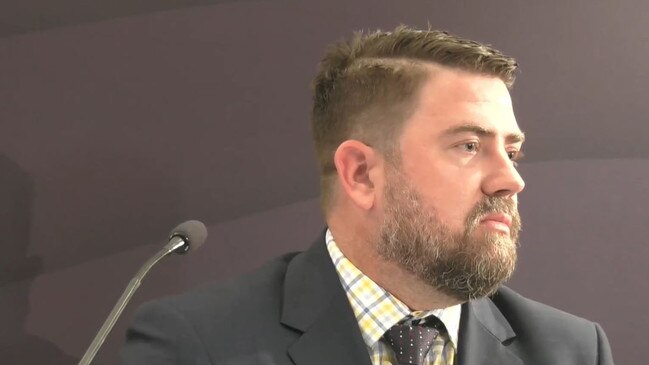
“At this current time, I don’t believe we should close Ashley,” he said.
“Keeping aside the history but talking about the facility itself … it’s a far superior centre than I have had in the Northern Territory in either of my facilities.
“I think the immediate closure of Ashley has the potential to damage the reforms we’re doing.”
Mr Rockliff said a number of improvements had been made at Ashley following issues raised before the commission, but said there were currently no better alternatives in which to house detainees.
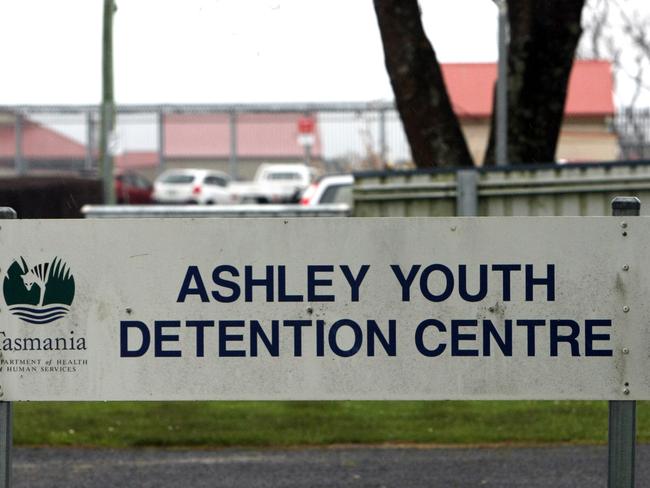
Under questioning from counsel assisting the commission, Elizabeth Bennett SC, Mr Simcock said he didn’t have any qualifications connected with youth work, youth social work or child safety.
Mr Simcock, who also agreed there were no plans yet in place for the design of the new centres, said he was “not convinced” there should be two new facilities in the north and south, rather than a single replacement facility.
“One of my concerns is if we build two detention centres and nothing around the through-care, then we won’t potentially achieve the goal of reducing recidivism and getting really positive outcomes for young people,” he said.
Mr Simcock said he hoped to have a recommendation on replacement designs soon – but that in order to achieve the 2024 deadline, “we should have a plan and we should have a parcel of land now to achieve that”.
“I think it’s just too tight,” he said.
Mr Simcock, who on the first day of his new job was also given the job of overseeing Ashley’s operations, said he was actively recruiting, with a number of Northern Territory-based staff having committed to move to Tasmania.
‘It’s not isolation’: Former Ashley manager defends ‘Blue Program’
THE former Ashley Youth Detention Centre manager has vigorously defended use of the “Blue Program”, where children would be locked alone in their room after a significant “incident”.
Patrick Ryan, giving evidence before the child sexual abuse commission of inquiry on Wednesday, said locking children in their rooms for a period of time was different from the now widely-criticised practice of “isolation”.
Mr Ryan was grilled on how locking children down in their rooms for periods of time under the Blue Program – during which they were given finger food and denied access to the Ashley school – was different to isolation, a practice subject to “certain statutory requirements”.
Mr Ryan said he couldn’t confirm whether staff had always complied with Ashley’s isolation procedures.
He described isolation as a “fluid decision” that was made after a critical event, but denied staff had a “considerable amount of discretion” as to when they employed the technique.
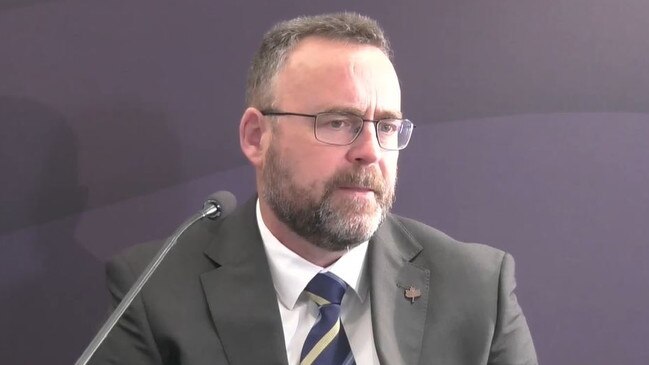
He said he only once made the decision to employ the Blue Program, after an incident in March 2019, describing the practice as an “intensive support program” that allowed “a young person time to settle and to reintegrate”.
Counsel assisting the commission, Elizabeth Bennett SC, asked Mr Ryan if locking children down in their room was isolation, “is it not”?
“No, I don’t agree that it was isolation. It was working under a program,” he replied.
“I see a difference.”
Ms Bennett asked if the Blue Program was subject to the same statutory obligations as the practice of isolation.
Mr Ryan replied the paperwork required of isolation procedures wouldn’t be completed but reaffirmed the Blue Program didn’t fall within the definition of isolation.
“It’s not isolation, I took advice and had discussion and that’s the position I reached,” he said.
Ms Bennett showed Mr Ryan an email he’d sent to a subordinate – which said “not for general consumption” – asking for a document to be amended following a request about the Blue Program from the Children’s Commissioner.
Mr Ryan denied the facility’s policies didn’t include the program, but that he’d wanted to “ensure” the document being sent to the Children’s Commissioner was the “actual current one”.
Mr Ryan, who worked at Ashley between 2017 and 2021, told the commission his formal qualification was a Graduate Certificate in Police Studies. He said he hadn’t received any training in therapeutic practices.
The former Tasmania Police senior sergeant said he applied for the job when he was attempting to get promoted to inspector.
“There was a process we were going through with the promotion board, and the feedback I received was to look at more strategic jobs,” Mr Ryan said.
“This particular position happened to be advertised, so I applied.”
Premier holds firm on not closing Ashley until end of 2024
PREMIER Jeremy Rockliff has told parliament the government “will not wait to take action” over the troubled Ashley Youth Detention Centre, while simultaneously pushing back against calls to close it immediately.
In a lengthy Ministerial statement, Mr Rockliff reaffirmed the government needed to “take the time to get this right” – with no better alternatives to Ashley currently available.
His comments came on the eve of the final set of child sexual abuse commission of inquiry hearings, which will run Wednesday until next Tuesday.
So far, the inquiry has heard from a number of witnesses who’ve provided a slew of disturbing revelations about Ashley, including child sexual abuse, violence against detainees, brutal and ad hoc strip searches, “torture” in isolation rooms, and a toxic workplace culture.
On Tuesday, Mr Rockliff responded to the various advocates and organisations who have called for Ashley to be closed now – not the end of 2024 as previously announced by the government.
He said the government shared “the same concerns” and that “we all want the same thing” – but there weren’t currently any better options.
“I understand the calls to close Ashley immediately,” Mr Rockliff said.
“If there was any capacity to close it sooner than 2024, of course we would. I would not hesitate.
“If there were better alternatives to Ashley available now, we would be taking them.”
Mr Rockliff said the government was taking “strong action” to keep children and young people safe at Ashley in response to issues raised before the commission.
He said the Ashley of today was not the same as it was two years ago, with better safeguards including a planned review of the facility’s CCTV, which would identify any “blind spots”.
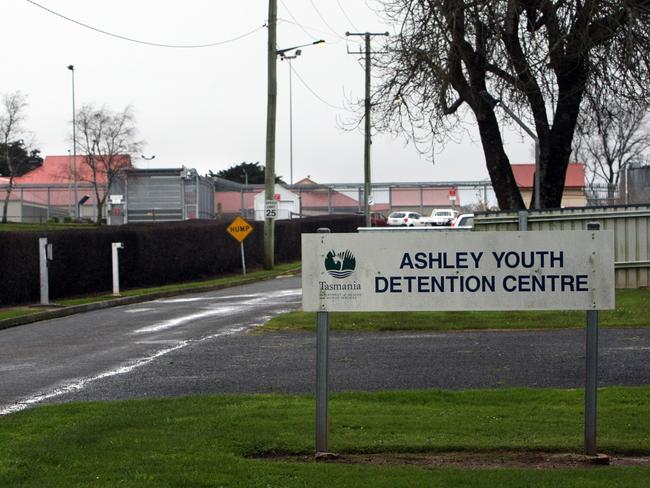
He also said a new policy on personal searches had been introduced, along with a trauma-informed model of care, and a better system in place for reporting allegations of abuse.
“To the young people currently in Ashley Youth Detention Centre please know that your safety and wellbeing is of the highest concern and importance to all of us,” he said.
Greens leader Cassy O’Connor said the government had power under the Youth Justice Act to declare another facility for youth detention “if they chose to do so”.
Ms O’Connor said the government “doesn’t want to do that” and that Mr Rockliff’s ministerial statement “effectively said nothing”.
She criticised the government for “dragging its heels”, noting that 10 of the 11 young people at Ashley were on remand, some who hadn’t even yet had a court appearance.
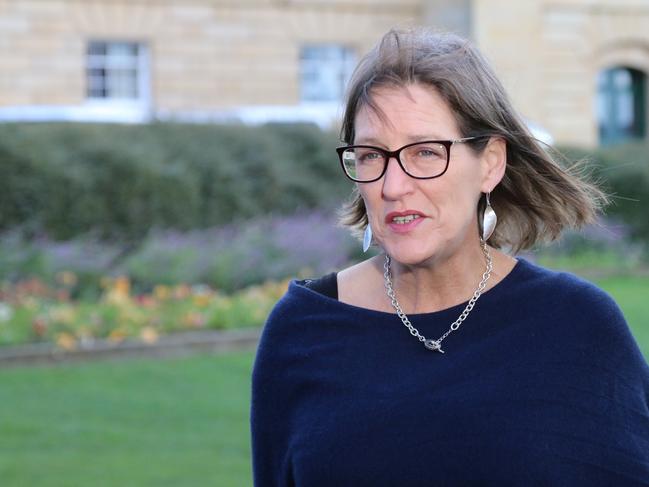
“It’s important to remember that most of the kids who are in there on remand are not in there because of some alleged violent incident,” she said.
“We think there is capacity here for the government to do better by kids on remand, and at the moment we’re not hearing a will to do that.”





